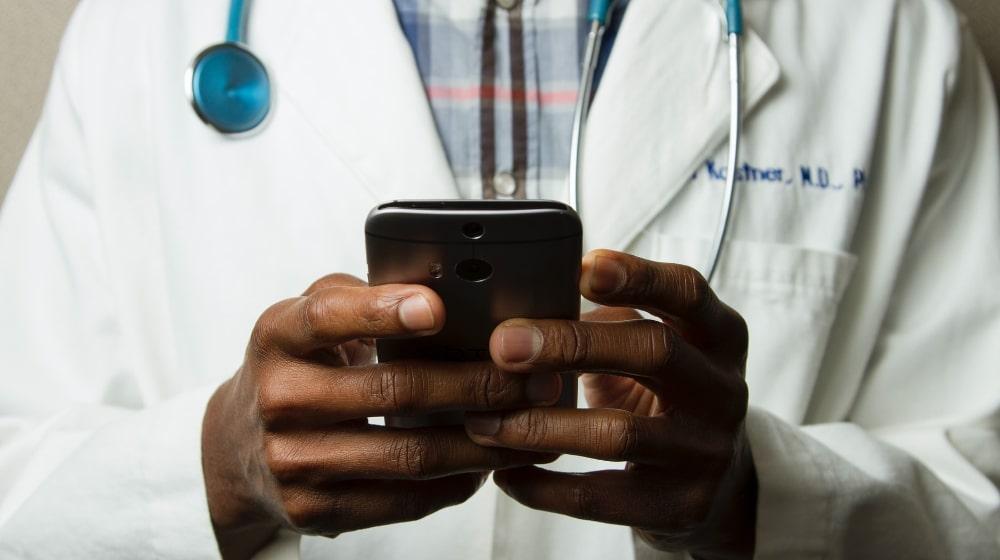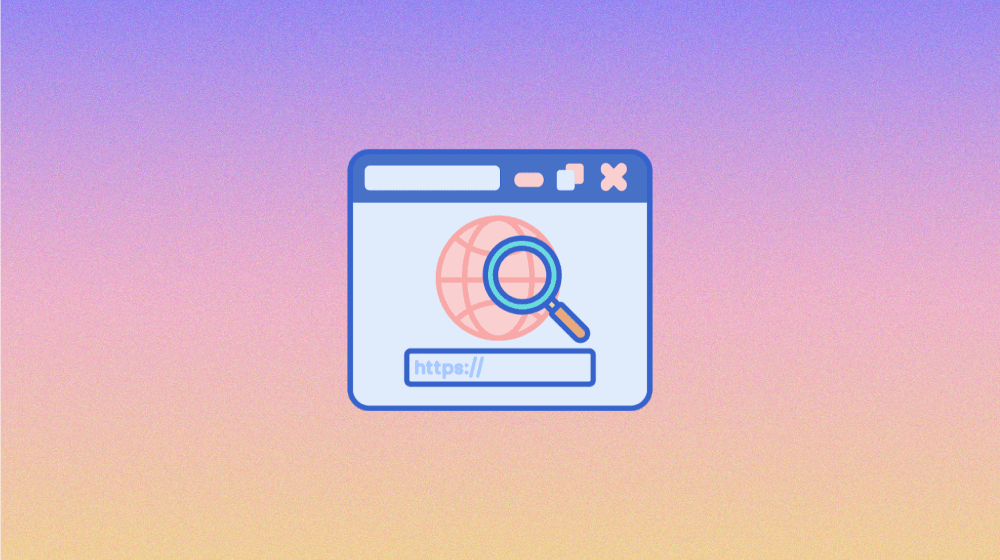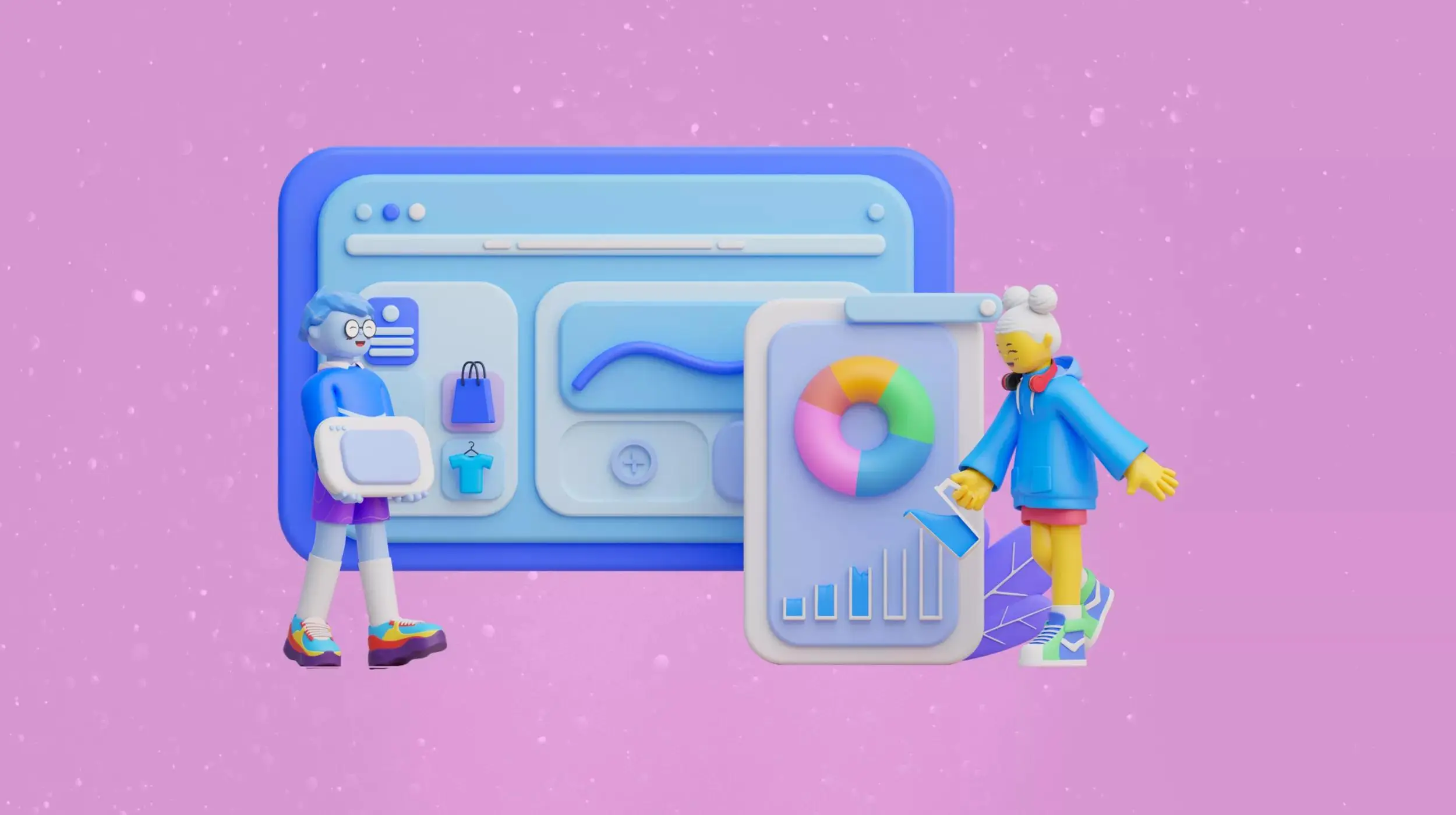The potential is vast for artificial intelligence (AI) and healthcare. In fact, there are various capacities where AI is emerging as a game-changer for the healthcare industry. Some of the more recent developments include AI robots looking after patients’ healthcare needs.
However, AI tools and technologies have been playing a critical role in other industries for several years now.
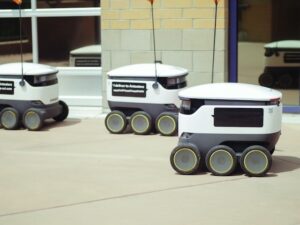
The term “artificial intelligence” was initially conceptualized way back in the mid 50’s. The objective was to enable a machine or computer to think and learn like humans.
In the healthcare industry, AI has evolved and generated buzz only in the last decade. AI-led tools and systems have raised the standards of health worldwide, making it easier for doctors and healthcare professionals to make more informed decisions.
According to research from ReportLinker, the AI and healthcare market is projected to grow from its current $2.1 billion to $36.1 billion in 2025.
This represents a staggering compound annual growth rate (CAGR) of over 50%.
In India too, implementation of AI and healthcare has resulted in multifold benefits in areas such as:
- Automating medical records
- Detection and diagnosis of diseases
- Personalized care
- Research and training
The COVID-19 pandemic has prompted hospitals and healthcare clinics to use AI solutions in managing the spread of the contagion through contract tracing and vaccine development -- to name a few.
Related: 5 technologies to improve customer experience
4 beneficial ways AI and healthcare are making an impact
When it comes to AI and healthcare, AI simplifies the lives of patients, doctors and hospital administrators. It does this by undertaking tasks that are typically done by humans, but in less time and at a fraction of the cost. Let’s explore a few important uses of AI and healthcare below.
1. Helps extract data from medical records
Electronic health records (EHRs) are complex and cover a patient's medical history and treatment plan. These EHRs are extremely difficult to scan through manually.
AI has the ability to quickly scan through information on a patient's medical history and offer recommendations for treatment.
This is especially useful for patients having complex medical histories resulting in multiple symptoms.
AI tools not only help doctors sort these records with utmost precision, but they also present the data in an easy-to-read format.
For example, IBM’s Watson Health helps healthcare organizations apply cognitive technology to unlock vast amounts of health data and power diagnosis. It can review and store medical information far quicker than any human.
2. Aid in early detection and diagnosis of diseases
In the case of many critical illness cases, the treatment prognosis is predicated on how early the diseases are detected. It is here that AI plays a key role.

In October 2020, a team of MIT researchers found that COVID-infected people with no symptoms may differ from healthy individuals in the way they cough. The team combined AI and healthcare to detect asymptomatic COVID-19 infections through coughs.
They found that it accurately identified 98.5% of coughs from people who were confirmed to have COVID-19.
Likewise, the increase of consumer wearables and other AI-led medical devices has been a major breakthrough.
This technology allows doctors to better monitor and detect potentially life-threatening issues at more treatable stages. Some of the major health concerns AI has aided doctors with include:
- Small tumors
- Heart conditions
- Early stages of cancer
- Diabetes
AI tools can range from simple laboratory robots to physiotherapists. There are even some surgical robots that can do operations by themselves.
AI offers insights into a wealth of data to detect the likelihood of long-term conditions, like depression. This data can then be analyzed based on a patient’s:
- Age
- Gender
- Comorbidities
- Lifestyle
- Environment and more
Using this type of AI technology enables clinicians to provide a more effective treatment sooner.
3. Improves clinical decision-making
When it comes to AI and healthcare, modern technology coupled with predictive analytics can support clinical decision-making. In turn, this allows hospital staff to prioritize more important tasks.
Dr. Angela Spatharou, partner at McKinsey & Company, said in a recent report, “AI has enormous potential to improve productivity and efficiency in health systems and make them more sustainable – but more importantly, it has the potential to deliver better health outcomes for patients.”
There are many ways AI can improve patient health:
- Enabling more preventive care
- Allowing healthcare practitioners to spend more time on direct patient care
- Helping AI decision-makers choose the right approach for their organization or health system
For example, Google’s DeepMind Health is working in partnership with clinicians, researchers and patients to solve real-world healthcare problems.
AI increases the ability for healthcare professionals to better understand the day-to-day patterns and needs of the patients.
Many medical centers use virtual AI nurses to provide round the clock care.
Some can even provide better feedback and guidance for staying healthy.
4. Advances research and training methods
As mentioned, AI can collect, store and analyze large data sets at a far quicker rate than manual processes. This enables researchers to carry out research faster and more efficiently. The data can be based around genetic variation from many patients and can be used to develop targeted therapies.
Today, AI is having a profound impact on how we:
- Research drugs
- Conduct clinical trials
- Understand diseases
For example, drug research and discovery is one of the more recent applications for AI and healthcare. Researchers see great potential to significantly cut both the time to market for new drugs and their costs.
AI can be used to educate and train a generation of data literate healthcare professionals. It can also help train the current workforce to:
- Reduce costs
- Improve quality
- Increase access to health care
AI needs to be seamlessly integrated across different aspects of the curriculum in colleges and schools teaching healthcare and pharma.
AI for combating COVID-19 pandemic
AI has played a key role in every aspect of the COVID-19 crisis response. Advanced technology helps medical practitioners screen and diagnose the virus, while also assisting in preventing the spread through surveillance and contact tracing.

With AI's growing application in telemedicine, it will be easier for doctors to remotely analyze, screen, and diagnose different health conditions. This will also allow them to prescribe medications more accurately.
Robots to the rescue
In many Indian states, robots are joining the fight against coronavirus. For example, the Bangalore-based company, Invento Robotics, has designed robots to carry out tasks like:
- Disinfecting surfaces
- Answering patient’s questions
- Enabling video consultations with doctors
To help combat COVID-19, Robots were also used for delivering health-related resources to offices or isolation wards. Resources often included:
- Face masks
- Hand sanitizers
- Public health messages
Many more startups in India are now working on AI solutions to help the government and private institutions slow the spread of COVID-19 in the community.
The challenges of AI and healthcare
In India, the AI challenges revolve around scarcity in funding and skill sets. Medical professionals are reluctant to adopt AI tools due to lack of training and knowledge on the subject. More importantly, they lack a clear set of guidelines from the government on AI ethics and practices that pose bigger challenges.
India’s e-health ambitions are yet to gain significant traction, despite promising starts with initiatives such as:
- National eHealth Authority (NeHA)
- Integrated Health Information Program (IHIP)
- Electronic Health Record Standards for India
Also, the World Economic Forum (WEF) considers the following to be the biggest ethical issues of AI:
- Safety
- Privacy
- Accountability
- Transparency
- Algorithm bias
These issues often become a problem – globally as well as in India – when AI takes charge over a human professional.
A look into human clinical bias in today’s healthcare
It’s important to note that biased decisions in medicine can happen in human clinical practices as well.
In fact, a recent study on bias in clinical practices showed that diagnostic errors are associated with 6-17% of adverse events in hospitals. Cognitive bias accounts for 70% of these diagnostic errors. Experts believe these diagnostic bias errors get embedded into the historical patient data and may lead to greater complications.
Hence, adding AI challenges (such as algorithm bias) to a system that already presents bias in clinical practices today could be fatal and lead to improper diagnosis and care.
How algorithm bias could affect clinical data sets
A Wipro blog noted that AI algorithms have a tendency to favor certain groups based on:
- Gender
- Age
- Race
In one example, a Canadian company developed an algorithm for auditory tests for neurological diseases. It was made with the intention of recording how a person speaks to determine early stage Alzheimer’s disease. Despite its near-perfect accuracy, the data consisted of samples of native English speakers only.
However, when non-English speakers took the test, it started identifying pauses and mispronunciations as indicators of the disease.
The biases presented in AI algorithms can further complicate the situation in India, where there are diverse groups ranging in:
- Language
- Culture
- Color
- Caste
In order to address these biases, Wipro recommends organizations understand and accept that a specific dataset could be problematic. The next step is to analyze why algorithms are biased and learn how to improve them. Doing so could improve how AI reviews certain information and how it interprets it fairly and accurately.
Future outcomes to look forward to
Despite a plethora of issues to overcome, the need for new innovative solutions in healthcare is increasing. According to India’s think tank NITI Aayog, AI adoption for healthcare applications is expected to see an exponential increase in the next few years.
They believe the following factors could potentially benefit the country’s healthcare when utilized together:
- Robotics
- Predictive analytics
- The Internet of Medical Things (IoMT)
These could not only help address health problems within local communities, but also meet the government’s mission on achieving critical healthcare objectives across the country.
Key focus areas of AI intervention in healthcare
In 2018, NITI Aayog placed healthcare among one of the focus areas for AI intervention.
They predict an incremental $957 billion could be added to the GDP by 2035 -- just by adopting AI into sectors such as healthcare and education. This would boost India’s annual growth by 1.3 percentage points.
Additionally, AI shows tremendous potential to:
- Bridge resource gaps in Indian healthcare framework
- Enhance the accessibility of quality care
- Reduce the high expense of healthcare
How a hybrid model works
The best opportunities for AI and healthcare over the next few years are hybrid models. These models would encourage healthcare providers and AI developers to collaborate on various innovative healthcare advancements.
For example, collaborative robots, or “cobots” can be used to work hand-in-hand with humans. These cobots would focus on:
- Accomplishing repetitive tasks
- Monitoring initial diagnosis
This would leave bigger tasks of decision-making and problem-solving to the human professionals for a better outcome.
Will AI doctors replace human clinicians?
Now, imagine talking to a physician whose name doesn’t bear the initials MBBS or MD. The physician not only does your early diagnosis, but also writes your prescriptions and offers other medical support with a high degree of accuracy and efficiency.
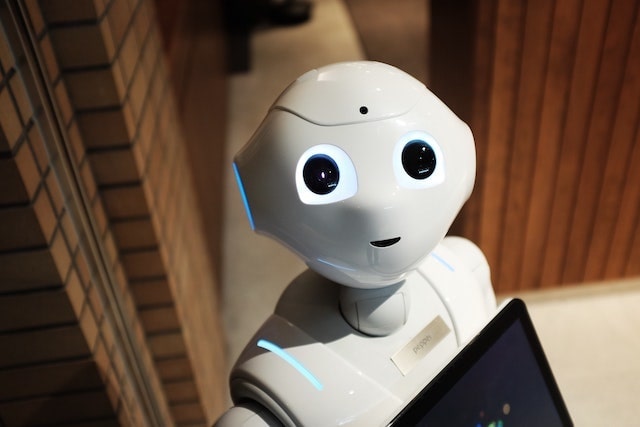
As you may have guessed, the thought of AI robots replacing human clinicians feels a lot like something out of a sci-fi movie. Many people are reluctant to the idea of having an AI doctor be the primary source for looking after their healthcare needs.
Researchers from Penn State and the University of California, Santa Barbara (UCSB) believe people may not be as forthcoming with AI doctors as they would be with their human counterparts.
Despite AI helping in diagnosis and treatment planning in a hybrid model, the ultimate responsibility for the patient’s care rests in the hands of a certified human clinician.
AI and healthcare are here to stay
For now, the hybrid model results in more ethical healthcare practices. Human clinicians can work with AI tools to offer operational efficiency at scale and deliver measurable improvements in patient outcomes.
In the coming years, AI tools and technologies will only continue to advance healthcare systems in ways that give us a better understanding of treatments and disease prevention.
